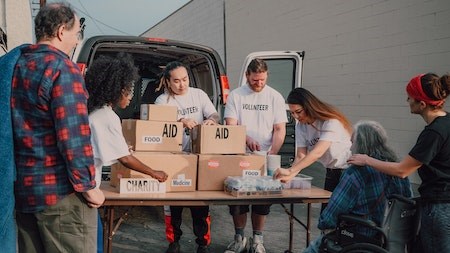Crime is escalating in South Africa, according to recent crime stats. The figures issued by the SAPS for January to March 2022 present a tragic and bleak picture when compared to the same period last year: a shocking 22.2% increase in murder; rape up by 13.7%; the murder of children increased by 37.2%; contact crimes up by 15.0%; sexual offences escalated by 13.7%; property-related crimes up by 0.1%; 1700 more kidnapping cases reported; and so on. It’s a disturbing list that warrants a re-examination of every part of society’s security.
For Property Practitioner’s, the concerns are legitimate. These are individuals who, in the course of their daily working lives, constantly interact with strangers. They enter homes of relatively or completely unknown people and similarly meet with potential buyers who may present fake ID’s.
Property agents are natural communicators, engaging with people on a personal level. They may tend to talk about their home lives, families and experiences; after all, they are just human. Their sales may be easily determined from websites, which means anyone with criminal intent may have some idea of earnings, particularly if selling in the high-end category of properties.
Regardless of the 'hinted' at rule that the agent's commission is split 1/3 to the government, 1/3 to the agency, and the balance to the agent, property practitioners who are top seller’s could be targeted by unscrupulous scam artists. Agents also spend significant amounts of time online, thus exposed to potential cybercrime, and similarly spend much of their time in the car, increasing their risk of hijacking.
The point is that agents are in the public space, and their contact details are exposed to any number of people who profess interest in properties. This immediately makes them vulnerable. Other than securing their clients' identification numbers or car registration numbers, there is seemingly little more agents can do to protect themselves against the negative unknowns they face during the course of conducting business.
Or is there?
Private Property undertook a snap survey to judge the sentiment around safety. A number of property practitioners across the country - who remained anonymous - provided feedback to specific questions. Note that the respondent's gender split was 55.56% female and 44.44% male.
1. Have you ever felt insecure or vulnerable when showing a home?' Only 10% responded yes.
2. Have you ever been sexually harassed by a buyer or seller? A resounding 100% no.
3. Do you feel more vulnerable showing properties than you did five years ago? 60% said no.
If you compare question one with three, there is a grey area. On the one hand, 90% don't feel vulnerable, and yet in the current environment, 40% say they feel more vulnerable than five years ago. This suggests that there is some awareness of escalating crime and consideration given to situational safety.
4. Do you still host a traditional showhouse or work by appointment only?
-10% traditional showhouse.
-50% by appointment.
-40% showhouse and appointment.
This confirms that the traditional show day is becoming less popular. Under Covid rules, a traditional show day can create a queue, with the agent under pressure to whisk clients through a showhouse lest those waiting become frustrated. Now factor in safety, regardless of whether the agent has noted ID or car registration numbers … again there is no surety that these are not fake.
5. Have any of your sellers been victims of theft while the house is on show?
90% say no, but with 267 832 residential properties on sale in 2021 (as per Lightstone), this translates into some 26 783 home owners who would have had items stolen while their property was on show.
Precautions
Let's return to the idea that more can be done to protect property practitioners while performing their duties. The final question in the survey asked what precautions individual agents take to protect themselves against potential threats from unknown buyers? In summary, the most popular responses were:
- Try to pre-qualify buyers.
- Always be accompanied by another person when showing a house.
- Limit free access of viewers to the home.
- Viewings by appointment only. No open houses.
- Keep all a property’s exterior doors locked.
- Carry pepper spray.
- Advise office of car registration/ID numbers.
- Never enter a client's car; instead, have them follow the agent to a viewing.
- Ensure family members know the whereabouts of the agent.
- If instincts go on high alert, call a colleague/husband/friend to meet you.
South Africa is currently experiencing an ever-changing environment, one where a poor economy, escalating cost-of-living, and increasing unemployment is impacting on tens of thousands. It may quite reasonably be assumed, therefore, that the major cause of the similarly escalating crime stats is relative to these factors, among many others. It, therefore, serves everyone to anticipate any potential threats and heed advice no matter where it comes.
Even globally, the safety of agents is heightened. In 2020 the National Association of Realtors Member Safety Report showed that 23% of realtors had experienced a situation that made them fear for their personal safety or the safety of their personal information. That report also claimed that 31% of realtors felt unsafe during an open house, which aligns closely to the 40% of South African agents from our survey that said they feel more vulnerable today than five years ago.
While SA may not be as sophisticated a market as, say, the US, where Apps can track the activities of agents and personal safety training courses are, for many, mandatory, there are some useful suggestions on top of those already in play in the local market. For example:
- Have two mobile numbers/sims - one for work, the other personal.
- Self-defence course.
- Real estate risk management plans (standardising safety procedures).
- Only showing houses during daylight hours.
- On-body panic buttons (eg: necklace or car key charm) linked to local security companies.
- Have a ‘code word’ for ‘I’m in trouble’ that is shared with office workers and family.
- Allow your phone to be live tracked by someone you trust.
- Always have an escape plan by staying between a client and an exit door.
- Keep your phone in your hand or on your body.
- Don’t over-expose your personal information, particularly on social media platforms.
- Invest in a secure ‘hotspot’ to ensure constant Wi-Fi.
If you are thinking about your personal and family safety ALL the time, and even if you do nothing else, at least you will be alert to the possibility of danger. This applies equally to all members of society, which, sad and disheartening as it may be, has become a huge part of how we live, how we interact, and how property practitioners show viewers homes.
Writer : Kerry Dimmer




